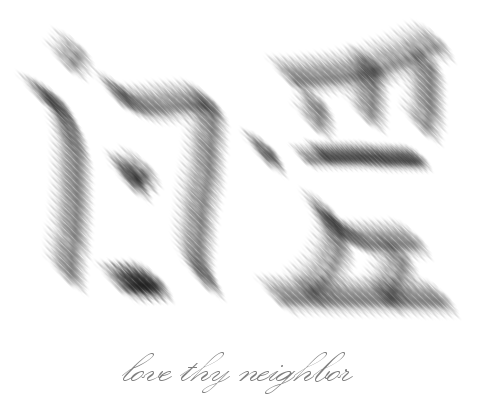Philosophy: Roger Ames
Sitting in English, I have seen the fall color flare and fade. I remember looking out the window in early September, the sky still bright with the heat of summer and the leaves a deep rich green. Slowly changes have taken place and the cool air has done it’s work. I glanced outside and was startled by the branches starkly outlined against the dirty blue of a stormy fall sky. It reminded me of that part in Phenomenon, where they sway with the trees, feeling the connection to nature. I get pensive pretty easily now; I think it comes with feeling so relaxed. Things follow one another now, food gets eaten, work gets done, fun gets produced. It’s no auto-pilot but how else could I name it? It’s more adpative than that, more dynamic; I would call it reactionary. Things happen and I simply react. Have you ever had that? Maybe it was in a basketball game when you simply flowed with the rythm and were unstoppable, or maybe you just reacted with the answer to a math problem, or maybe you were driving and you reacted on the road without thinking. Imagine existing on that level for so long that you start to feel like you are watching yourself go through your life. It is simultaneously disconcerting and relaxing. But why should it end if everything is going your way? What’s wrong with removing yourself from yourself sometimes? Well, you stop feeling and just do. That has it’s disadvantages, trust me.
I still do not understand who takes a watch for a week and then gives it back; I am really stuck on that you may have noticed. Honestly, though!
Attended a philosophy lecture last night given by Dr. Roger Ames, professor of Chinese philosophy at the University of Hawaii. The least I can say is it was excellent. I don’t feel like my comments do justice to it. It was really fascinating how he brought out pieces of the Chinese language and analyzed them. You could tell right away how well he knew the language both in terms of symantics and diction. He could pronounce, analyze, and expound upon the history of any number of words. Here’s a phrase that struck me:

Oh, and he was talking about a philosopher with the last name of “James” who was a mentor to a certain “Dewey” (yeah the guy with the decimal system). James had a story he used to illustrate the interaction between human beings called “Jack and Jill.” In discussion about this, one of Ames’ sentences really struck me: “If Jack loses relationship with Jill, he is surgically dimished to the extent that he put himself into the realtionship.” Of course, this fit in quite well with the discussion leading up to it: “To love yourself as your are constituted by your roles and relationships is to love the world.” Another example Ames’ used quite well was the wedding. He pointed out how he went all out to plan a wedding in Hawaii for his brother. It was complete with a beautiful view of the ocean, a traditional grass hut, music, and flowers all over, their scents intermingling and flowing through the warm breeze. He continued on to describe how the couple got quite emotional on the altar, and how his brother’s fiance almost “ruined the wedding” - he was kidding of course. But they made it through the ceremony and then proceeded to go sign the papers to make it official by law without any tears or emotions. The point is, of course, that “rituals perform us” and that these set us apart from being animals. The real meaning is, for us, invested in the ritual of an event, not the even itself. I could go on and on about all this. I’ll be content to share one more thing; the Chinese don’t have the term “everybody.” Our “everybody” tabulates people by their physical bodies while the Chinese tabulate by relations. This definitely enforces the Confucian view that we are the “totality of the roles we play in relation to others.” When the Chinese address a large group of people, the word they use translates directly as “big family.” In the classroom, the word for teacher translates as father-teacher. Now think about that for a second, as Ames’ had us think. In your family, you give your all to each member and are fully committed to the group unit. Isn’t it amazing that this ideal of family has been incorporated not only into the culture but into the very symantics of the language of the Chinese society?
I am searching for another place to play piano here. The Grace piano has too light a touch, to the point that I am at a distinct disadvantage on normal pianos after playing on that one for a couple of weeks. That, and it sounds like crap. I’m not picky or anything because there are plenty of pianos in BEC - I just have to walk the extra 100 feet. Shouldn’t be a problem, should it? Remaining for this week: finish math, do a little German, prepare for gym final on Friday, prepare for poster session on Friday, get healthy, begin philosophy final preparation, and begin/finish math lab. Should be fun!
I don’t know about you, but making lists always helps me organize my life and get my thoughts straight. Try it sometime, it’s almost as if the more you write, the more that gets done. But whether or not you write things down, keep a big opening for “fun” at the top of your list, that’s where it belongs.